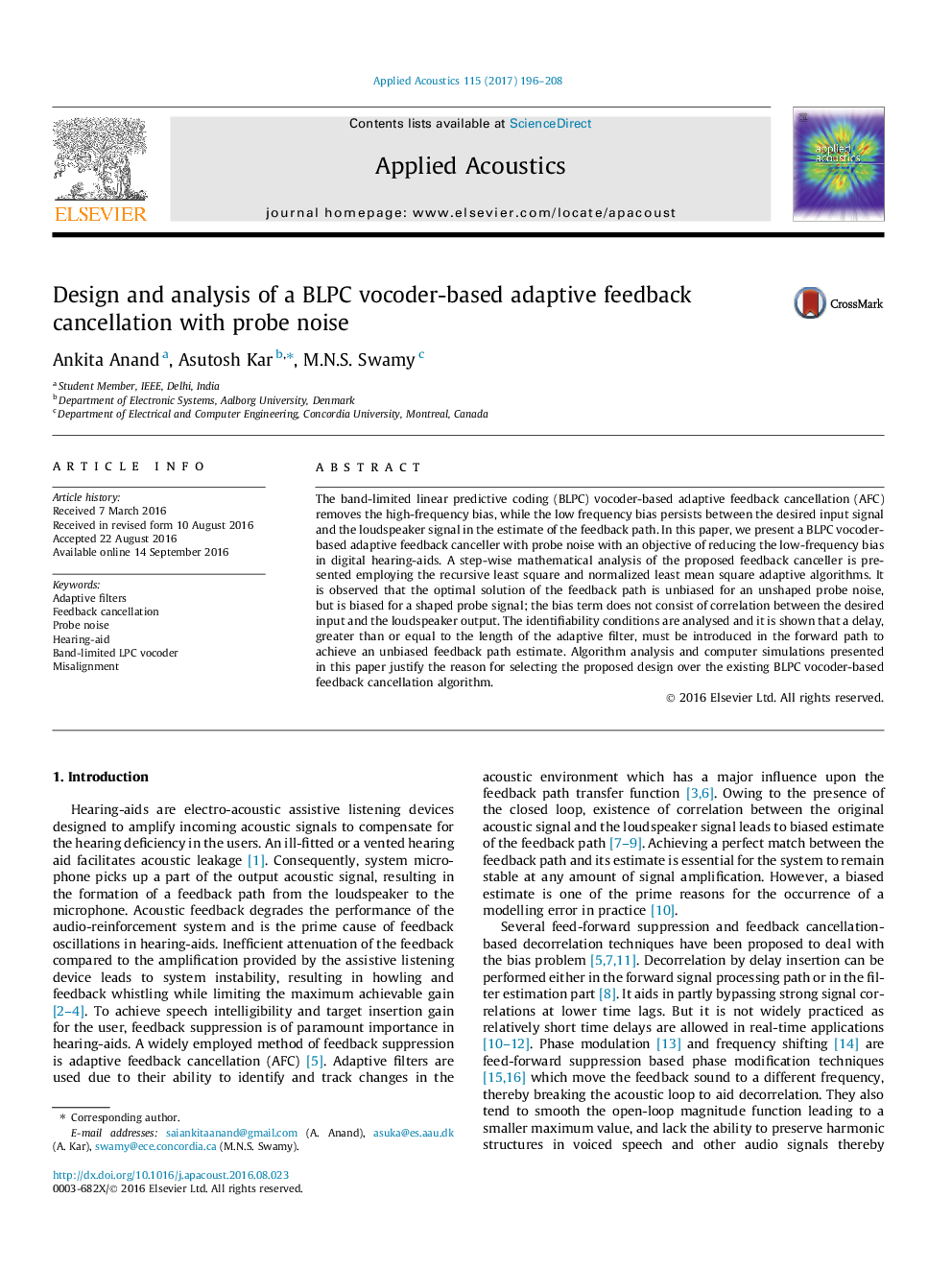| Article ID | Journal | Published Year | Pages | File Type |
|---|---|---|---|---|
| 7152433 | Applied Acoustics | 2017 | 13 Pages |
Abstract
The band-limited linear predictive coding (BLPC) vocoder-based adaptive feedback cancellation (AFC) removes the high-frequency bias, while the low frequency bias persists between the desired input signal and the loudspeaker signal in the estimate of the feedback path. In this paper, we present a BLPC vocoder-based adaptive feedback canceller with probe noise with an objective of reducing the low-frequency bias in digital hearing-aids. A step-wise mathematical analysis of the proposed feedback canceller is presented employing the recursive least square and normalized least mean square adaptive algorithms. It is observed that the optimal solution of the feedback path is unbiased for an unshaped probe noise, but is biased for a shaped probe signal; the bias term does not consist of correlation between the desired input and the loudspeaker output. The identifiability conditions are analysed and it is shown that a delay, greater than or equal to the length of the adaptive filter, must be introduced in the forward path to achieve an unbiased feedback path estimate. Algorithm analysis and computer simulations presented in this paper justify the reason for selecting the proposed design over the existing BLPC vocoder-based feedback cancellation algorithm.
Related Topics
Physical Sciences and Engineering
Engineering
Mechanical Engineering
Authors
Ankita Anand, Asutosh Kar, M.N.S. Swamy,
